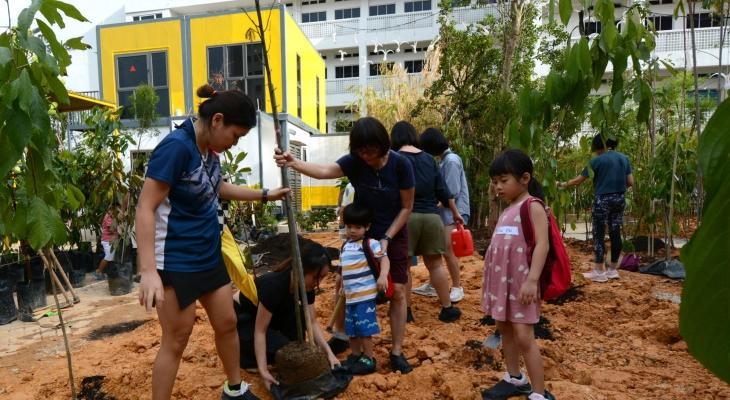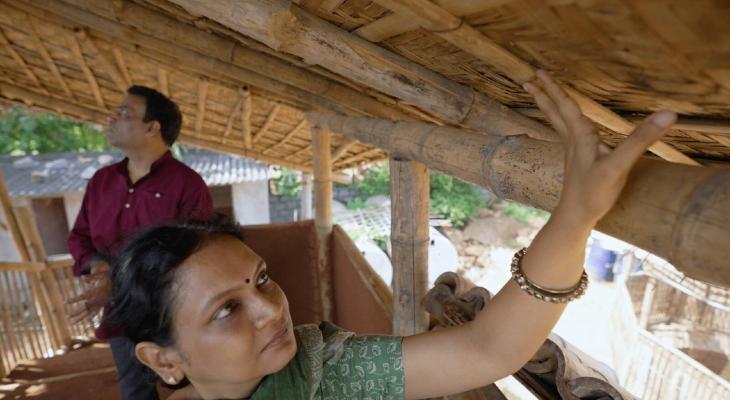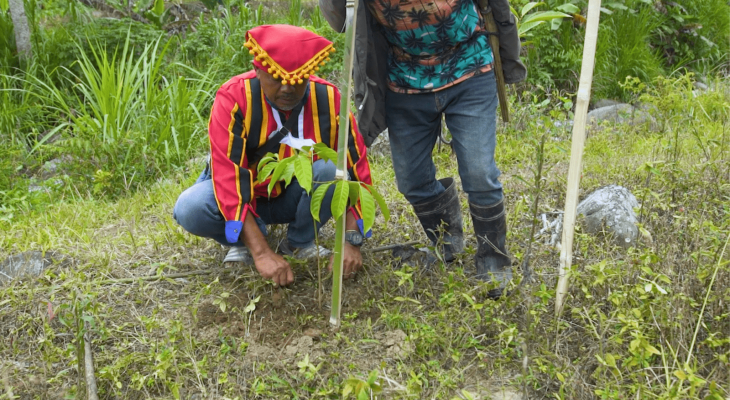Let’s Take Ownership of Saving Our Planet by Grant Pereiria
Singaporean Grant Pereira is one of Southeast Asia’s most prominent environmentalists, who has been working in environmental and wildlife conservation for over 40 years, and is the founder of Green Volunteers. He reflects on Singapore’s green journey, commends Malaysia's Free Tree Society, and emphasises global collaboration, with youth leading the charge.
I’m 75 years old now. Older than many trees in Singapore. I know this because I have planted tens of thousands of them during the decades long journey Singapore has taken in its mission to balance progress and nature conservation.
In the 1960s, the ‘Garden City’ vision took shape — to create a city filled with greenery and a clean environment. By the 2000s, however, we prioritised environmental sustainability as a core focus, shifting towards ‘Singapore, a City in Nature.’
A range of initiatives followed — sustainable urban development, green infrastructure, eco-towns like Punggol and Tengah, and more green spaces like forest corridors, parks and park connectors.
I recently learned about a World Health Organisation urban city report, which recommends 50 sqm of green space per person. I was glad to hear that Singapore has worked hard on this, and we now have 66 sqm per person. With the Singapore Green Plan 2030, we’re going to double our annual tree planting rate which will see a million more trees planted in the next decade. We’re only halfway though this time frame but we’ve already planted over 718,000 new trees here.
But it’s not just about green spaces. These efforts have nurtured a growing community of nature lovers. Back in the 70s, there were only a few of us leading the charge for the environment; good people like Chua Sian Chin, Hardial Singh, and Eric Alfred. But today, I am heartened to have hundreds of thousands of people, especially youths, involved with hundreds of NGOs and ground-up initiatives in environmental action. One such community-led effort is the Green Volunteers, which I founded in 1997. Our hands-on work — mangrove clean-ups, reforestation, and building biodiversity gardens — has helped restore Singapore’s flora and fauna.
This combination of government-led and community-driven projects is exactly what’s needed for such an important cause. It’s been incredible to witness Singapore’s transformation and there’s so much knowledge that we can share with the region. But there’s still so much more we can do, and even learn from our neighbours.
We could take inspiration from Malaysia’s Free Tree Society. Their efforts to use people to green their surroundings are impressive. In Singapore, schools hold great potential for something similar. Imagine if every school planted 10 native fruit trees a year, with students taking care of them. These schools could become mini-nurseries, distributing saplings to the public.
I appreciate how Free Tree is bringing environmental education to the public and to schools as education is key to shifting attitudes towards climate change. Singapore’s education system is doing a good job of educating young minds about conservation and the environmental challenges we face, but I believe we can do more.
Simple actions, like dedicating 20 minutes at the end of each school week to discuss topics like recycling or energy conservation, could make a difference. Children could then apply these lessons over the weekend and document their eco-friendly actions to inspire others. I also plan to run events at Bukit Timah to show people the value of our forests, which I would like to invite every school to send their students to learn how forests are our lungs, indispensable to our survival.
But these ideas aren’t just meant for Singapore or Malaysia — they’re for the global community. If we could stop thinking along national borders and instead see ourselves as citizens of the world, collaborating to solve our shared environmental challenges, we can create a better planet and improve our collective wellbeing.
I’ve worked across Asia — in Thailand, Cambodia, Laos, China, and more. Even now, at 75, I’m knee-deep in the swamps of Batam, Indonesia, helping to rebuild mangroves. Healthy mangroves prevent soil erosion, filter harmful chemicals, produce oxygen, and sustain fish populations like Sea Bass and Mangrove Jacks which benefit local fishing communities. Nature helps us, so we must help nature in return.
It takes a village of committed individuals to not just imagine a sustainable future, but to make it happen.
Youths today are more environmentally aware, and I believe they should be the ones bringing home the message of conservation. Let’s nurture creative thinkers who can develop nature-based solutions to environmental problems. Let’s make Green Clubs in schools ‘cool’ and challenge students to make the most impact. Let’s work towards a future where we live in harmony with nature.
About Free Tree Society
Free Tree Society, based in Kuala Lumpur, Malaysia, is a non-profit organisation dedicated to addressing climate change and promoting environmental sustainability. Its mission centres on a simple yet powerful action: distributing free plants to the public. The more plants there are, the more carbon dioxide is absorbed — a straightforward, nature-based solution to counter a greenhouse gas that is a major contributor to global warming.
Beyond plant distribution, Free Tree Society seeks to cultivate environmental stewards who lead the way in building sustainable communities. Through gardening and planting workshops, participants are empowered to grow green spaces and understand their role in shaping a greener, more sustainable urban environment that works in harmony with nature.
The workshops are a gateway to broader environmental awareness, addressing key issues such as waste management, rainwater harvesting, and nature preservation. Presented in an accessible manner, these initiatives make complex sustainability topics approachable and actionable for all.
Volunteers play a crucial role in this movement, helping to expand green spaces, preserve biodiversity, and raise awareness of sustainable living—all of which contributes to the United Nations’ Sustainable Development Goals (SDGs), particularly climate action and sustainable cities.
By volunteering, individuals contribute directly to Malaysia’s environmental future, promoting eco-conscious lifestyles and taking a stand against climate change. Free Tree Society provides a platform for meaningful action, making a lasting impact on both communities and the planet.
Contributors
Director & Camera
Producer
Camera
Mohd Saiful Ikhwan & Mohd Jihaty Abady
Editor
Lourdes Gason
Sound
Mohd Faizal Rizual
Executive Producer







